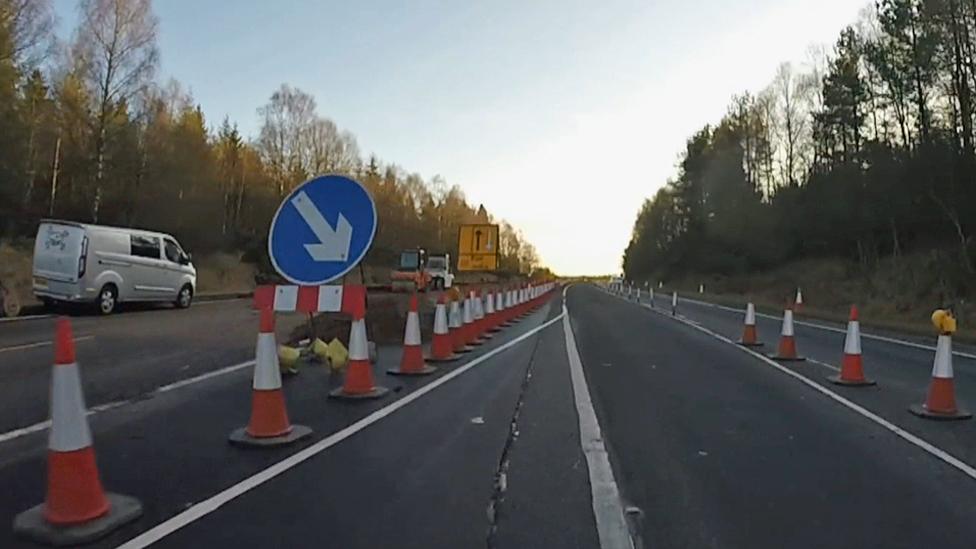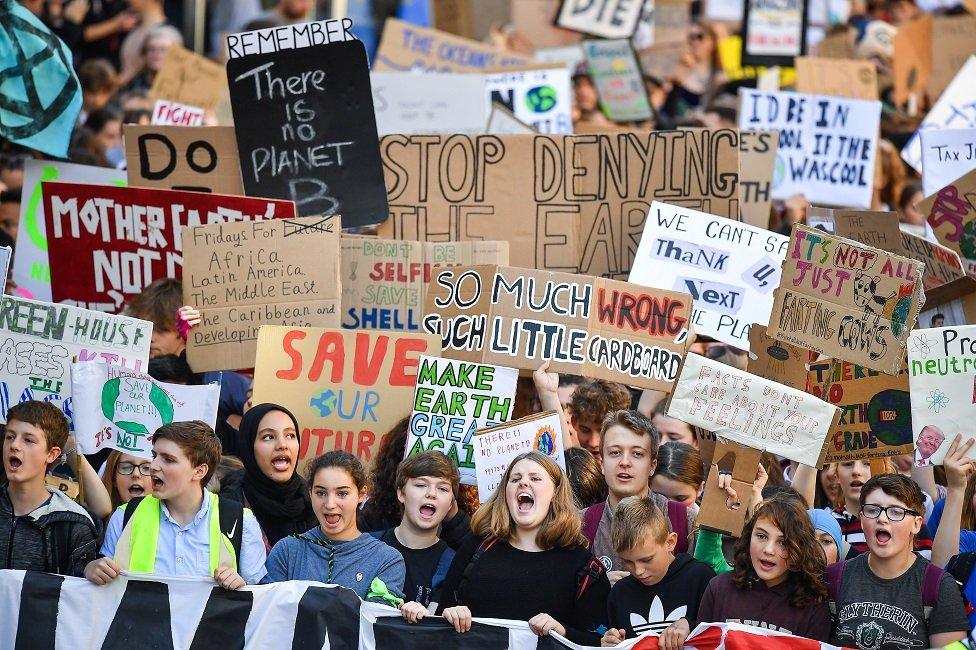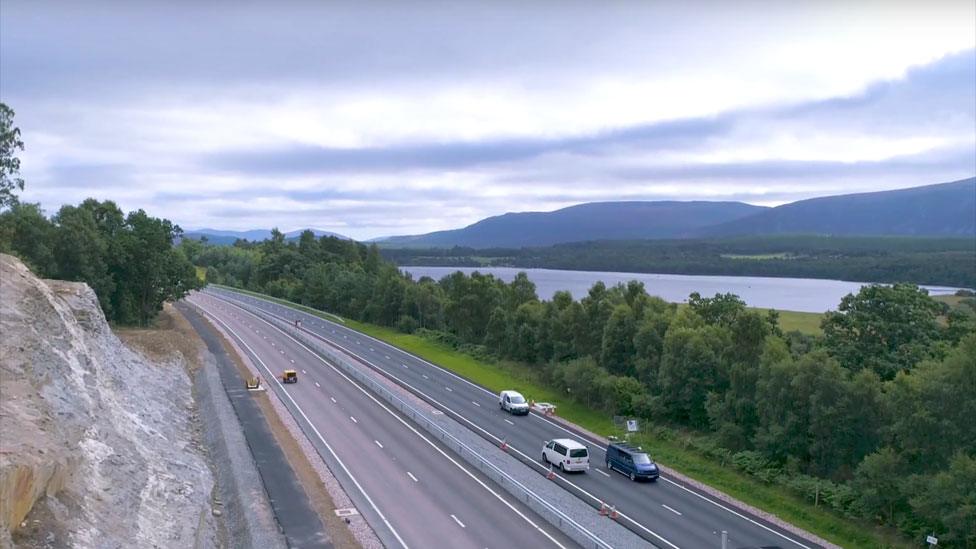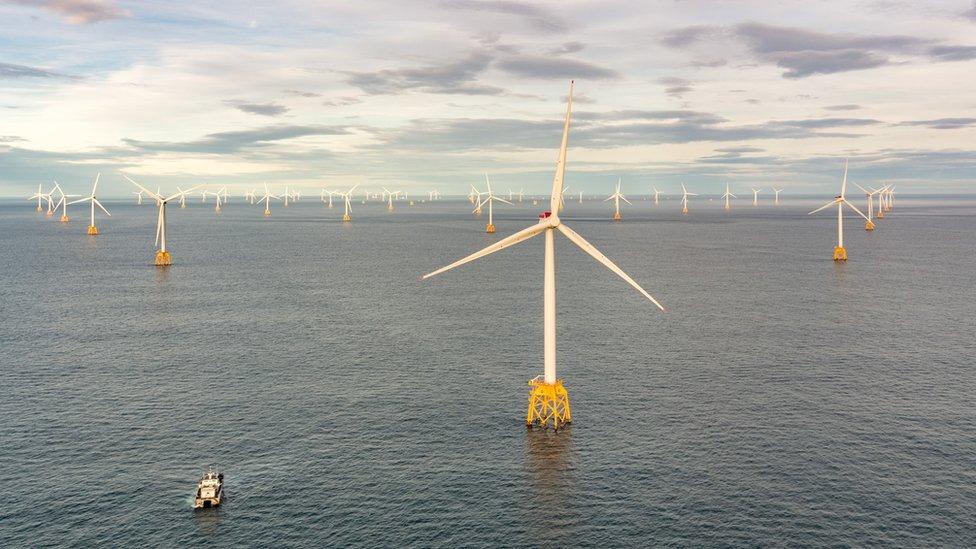Minister insists zero carbon future still needs good roads
- Published
- comments

Stretches of the A9 are being upgraded to dual carriageway
Scotland's infrastructure secretary has insisted that upgrading the A9 road is not incompatible with climate targets.
Michael Matheson said the £3bn project was vital to the economies of the areas it serves.
The government has been warned by its advisers that difficult choices will have to be made.
The Infrastructure Commission for Scotland said the government should make big spending decisions based on whether they help reduce emissions.
In a major report just published, external, it said public projects should look first at re-using existing structures.
The government has backed a plan to make the A9 dual carriageway all the way from Perth to Inverness.

Young people in Scotland have taken part in global climate protests
Last year the Scottish parliament voted for a legal commitment to have all emissions offset by 2045.
An interim target will see emissions reduced by 75% between 1990 and 2030.
Mr Matheson, speaking on the BBC's Good Morning Scotland programme, denied that projects such as upgrading the A9 road, were incompatible with the net zero target.
"Even in looking to reduce our carbon output we will always have to have - in moving to a zero carbon economy - we'll always have to have good road infrastructure," he said.

The A9 is Scotland's longest trunk road
"The A9 is the largest infrastructure project ever in Scotland at some £3bn.
"It's critical to supporting the Highlands economy and the economies of Perthshire that are dependent on the A9."
Recommendations for the creation of what is called "an inclusive net zero carbon economy" from the Infrastructure Commission report include:
A new charging system to replace fuel duty and road taxation
The "future proofing" of existing roads in preference to building new capacity
New incentives for homes, public buildings and commercial premises to use low-carbon heating technologies
Members of the commission said "the nature, purpose and focus of infrastructure investment over the 30 year horizon is likely to change fundamentally".

What does net-zero mean?

The terms carbon neutral and net-zero are often used interchangeably but there are differences.
Carbon dioxide (CO2) is the most abundant greenhouse gas but there are others which the Scottish government counts and they are not all carbon-based.
Therefore, some climate change campaigners prefer the term net-zero as it includes not just CO2 and methane but also nitrous oxide, which is emitted during agricultural and industrial activities as well as from fossil fuels.
Simply being carbon neutral would not stop global warming because these other gases are also harmful to the atmosphere.
Perhaps an even better term would be "climate neutral".


Use the tool below and we could be in touch.
If you are reading this page on the BBC News app, you will need to visit the mobile version of the BBC website to submit your question on this topic.
- Published18 December 2020

- Published2 October 2019

- Published25 September 2019

- Published28 April 2019
